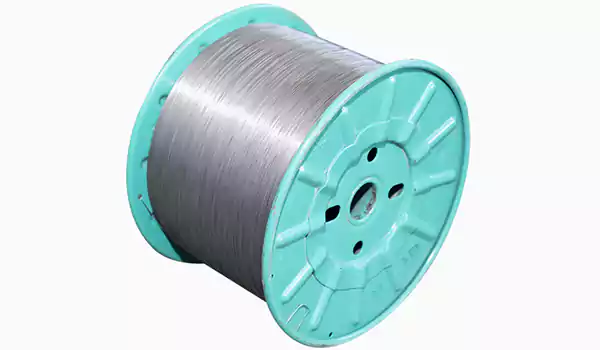Planning to source industrial grade hot rolled steel distributors?

Electing the proper metallic pipe for project requirements calls for clarity about its specs and real-world uses. Common specifications include material type, wall thickness, length, and tolerances. Considerables like pressure rating, temperature sustainability, and rust resistance shape decision-making for industrial, commercial and household pipe applications. Piping systems are used in erection projects, manufacturing plants, infrastructure networks, water and gas delivery, waste removal, framework support and tailored industries
- Knowing project-specific constraints is critical to pick the right conduit
- Review authoritative industry guidelines to understand exact specifications for metal pipes
- Make material choices informed by pressure capacity, heat conditions and corrosion risk
Hollow Steel Sections: Strength, Durability, and Flexible Use
Round and shaped tube steel deliver substantial strength and are frequently specified in industrial, structural and commercial applications. Enhanced durability is rooted in manufacturing processes and material selection. Engineered by converting steel billets and rods into seamless or welded tubes, they provide strong anti-corrosion and wear properties for extended durability in challenging environments. Shapeable tube steel makes possible an array of profiles from basic circles to sophisticated geometries tailored to project specifications. Whether used in major structural frameworks, complex equipment or precision machinery, tube steel's strength, long service life and versatility render it a critical material in modern fabrication and constructionExpanded Metal Lattice for Heightened Security and Safety
Expanded metal mesh is frequently used where physical security and heightened safety are both necessary. Its perforated structure supports visibility and also functions as a robust barrier against unauthorized access and hazards. Expanded mesh options include varied aperture dimensions and metal gauges to match particular applications
- High durability of expanded metal protects against impact forces, vandalism and extreme weather
- Additionally, easy installation and minimal upkeep expand its use in multiple industries
- For shielding essential facilities and personnel safety in manufacturing sites, expanded metal provides a complete protective approach
Heavy-duty Uses of Steel Mesh in Industry
Metal steel mesh is widely applied across industrial uses because of its strength, durability and flexible performance. It forms a firm matrix used in filtration systems, screening equipment, reinforcement layers and protective barriers. Concrete structures often employ steel mesh reinforcement to bolster tensile strength and lessen cracking tendencies. Furthermore, steel mesh contributes to structural reinforcement in bridges, tunnels and civil engineering for enhanced load capacity. Within manufacturing, steel mesh functions crucially in screening and filtering equipment—the dense weave separating particles of varied sizes for sieving and purification. Additionally, steel mesh is used in safety and security contexts including barriers, fencing and enclosures to restrict access and protect staff. Because of superior tensile capacity it withstands forceful impacts and stress, proving appropriate for robust protective installations
Metal Pipes for Structural Support
Given their strong nature, metal pipes serve as essential components in various structural applications. Their adaptability helps create dependable frameworks that perform load-bearing functions across industries. From tall structures to bridge infrastructure and underground pipelines, metal pipes serve as foundational support that tolerates harsh environmental pressures. Corrosion protection and ability to be readily formed enhance their significance in contemporary building practices
Choosing the Correct Tube Steel for Your Build
When planning construction or fabrication, selecting the right tube steel is critical. Because of its strength, durability and relative lightness, tube steel serves well in many roles. Yet the plethora of grades and specs available makes selecting tube steel a sometimes complex task
- Examine intended use, structural load and environmental conditions for correct selection
- Aspects like wall thickness, diameter and material grade directly affect tube steel performance
For major structural projects opt for heavy-gauge, high-yield tube steel; for low-mass applications opt for thinner-walled steel
Engage expert engineers or proven suppliers to help pick the right tube steel for the specific project
Construction Benefits of Using Expanded Metal
Expanded metal offers a set of practical and effective benefits for the construction industry. The relatively light weight reduces handling difficulty, speeds installation and lowers labor costs. Besides, the open design allows superior ventilation and drainage to mitigate dampness concerns. Its durability makes it suitable for high-resistance applicationsComprehending Pipe Joint Types
Pipe joint components are key elements in piping systems that secure continuous fluid and gas transmission. Connection type selection relies on pipe size, material type, pressure specifications and application needs. Standard metal pipe connections include threaded, flanged and steel plate welded options that vary in strength and sealing performance. Threaded connections fasten male and female threads together, flanged types secure plates with bolts, and welded types create permanent seals by applying heat and pressure. Understanding characteristics of each joint type is crucial for achieving leak-free, operational pipingSteel Mesh for DIY: Versatile Material Options
Steel mesh brings durable, versatile and strong characteristics suitable for various DIY creations. The mesh's open grid supports making fences, screens and ornamental pieces. In addition, the material's lightness and manageability attract both amateur and experienced DIY practitioners
- Think about using metal mesh for your next craft or build
Metal Pipes: Functional Plumbing to Structural Support
Steel pipes are crucial to modern infrastructure and construction due to their robust strength, lasting durability and adaptable nature. Originally used mainly for plumbing and sanitary systems, metal pipes have evolved to play major roles in structural reinforcement and support. From the foundational supports of buildings to the arteries of water and gas distribution, metal pipes offer critical functions in modern systems. Strong material properties let them handle large pressures and forces while corrosion protection maintains long-term reliability. Likewise, high formability supports adapting pipes to many configurations for different application requirements
Design Potential and Function of Expanded Metal
Expanded metal presents unique design possibilities while offering strong functionality. Open structural design facilitates uses from architectural ornamentation to industrial safety and protection systems. Robust expanded metal withstands considerable loads and still provides attractive appearance
- Also, the open matrix improves air movement and is ideal for thermal regulation and cooling applications
- Expanded metal finds application in construction, production, transport, automotive and decorative design industries